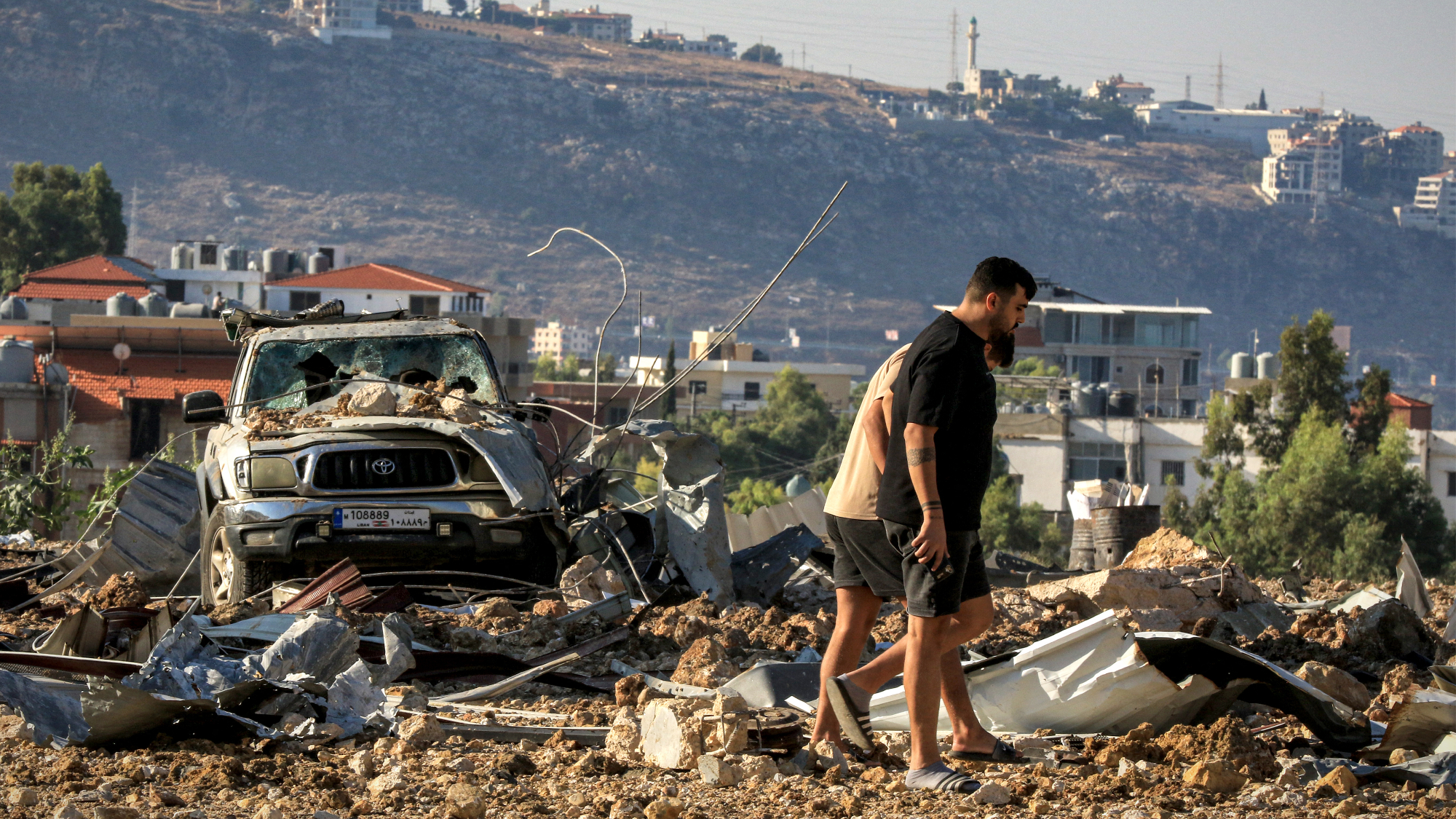US, allies push 21-day Israel-Lebanon cease-fire
The United States, France and other European and Arab nations are scrambling to prevent a full-scale war


A free daily email with the biggest news stories of the day – and the best features from TheWeek.com
You are now subscribed
Your newsletter sign-up was successful
What happened
Israel took steps to prepare for a ground invasion of Lebanon Wednesday as the U.S., France and other European and Arab nations scrambled to prevent a full-scale war, proposing an "immediate 21-day cease-fire across the Lebanon-Israel border to provide space for diplomacy."
Who said what
The cease-fire deal was worked out in 48 hours on the sidelines of the United Nations General Assembly. Its dozen signatories said the recent intensification of fighting is "intolerable and presents an unacceptable risk of a broader regional escalation." U.S. officials said they were optimistic Lebanon and Israel would accept the proposal, with Lebanon responsible for Hezbollah's compliance.
Lt. Gen. Herzi Halevi, the Israeli military chief of staff, told soldiers near the Lebanon border yesterday that ongoing Israeli airstrikes are "both to prepare the ground for your possible entry and to continue degrading Hezbollah." Israel has killed about 600 people in Lebanon since Monday, according to Lebanon's health ministry. Hezbollah has continued sending missiles into Israel, including its first aimed at Tel Aviv. Israeli air defenses shot down that ballistic missile, but Hezbollah faces the "consequential" choice to either "unleash more of its advanced weapons, striking deeper into Israel and potentially triggering a full-scale war," The Wall Street Journal said, "or hold back and risk diminishing its reputation as one of the fiercest fighting forces in the Middle East."
What next?
"Hell is breaking loose in Lebanon," U.N. Secretary General António Guterres said at an emergency Security Council meeting Wednesday night. "War is not inevitable," French Foreign Minister Jean-Noel Barrot told the Security Council. "We are counting on both parties" to accept the 21-day cease-fire "without delay." Barrot is set to travel to Lebanon to try to persuade officials in Beirut.
The Week
Escape your echo chamber. Get the facts behind the news, plus analysis from multiple perspectives.

Sign up for The Week's Free Newsletters
From our morning news briefing to a weekly Good News Newsletter, get the best of The Week delivered directly to your inbox.
From our morning news briefing to a weekly Good News Newsletter, get the best of The Week delivered directly to your inbox.
A free daily email with the biggest news stories of the day – and the best features from TheWeek.com
Peter has worked as a news and culture writer and editor at The Week since the site's launch in 2008. He covers politics, world affairs, religion and cultural currents. His journalism career began as a copy editor at a financial newswire and has included editorial positions at The New York Times Magazine, Facts on File, and Oregon State University.
-
 What are the best investments for beginners?
What are the best investments for beginners?The Explainer Stocks and ETFs and bonds, oh my
-
 What to know before filing your own taxes for the first time
What to know before filing your own taxes for the first timethe explainer Tackle this financial milestone with confidence
-
 The biggest box office flops of the 21st century
The biggest box office flops of the 21st centuryin depth Unnecessary remakes and turgid, expensive CGI-fests highlight this list of these most notorious box-office losers
-
 ‘Bad Bunny’s music feels inclusive and exclusive at the same time’
‘Bad Bunny’s music feels inclusive and exclusive at the same time’Instant Opinion Opinion, comment and editorials of the day
-
 Trump links funding to name on Penn Station
Trump links funding to name on Penn StationSpeed Read Trump “can restart the funding with a snap of his fingers,” a Schumer insider said
-
 Trump reclassifies 50,000 federal jobs to ease firings
Trump reclassifies 50,000 federal jobs to ease firingsSpeed Read The rule strips longstanding job protections from federal workers
-
 Supreme Court upholds California gerrymander
Supreme Court upholds California gerrymanderSpeed Read The emergency docket order had no dissents from the court
-
 700 ICE agents exit Twin Cities amid legal chaos
700 ICE agents exit Twin Cities amid legal chaosSpeed Read More than 2,000 agents remain in the region
-
 Vietnam’s ‘balancing act’ with the US, China and Europe
Vietnam’s ‘balancing act’ with the US, China and EuropeIn the Spotlight Despite decades of ‘steadily improving relations’, Hanoi is still ‘deeply suspicious’ of the US as it tries to ‘diversify’ its options
-
 Trump demands $1B from Harvard, deepening feud
Trump demands $1B from Harvard, deepening feudSpeed Read Trump has continually gone after the university during his second term
-
 House ends brief shutdown, tees up ICE showdown
House ends brief shutdown, tees up ICE showdownSpeed Read Numerous Democrats joined most Republicans in voting yes
